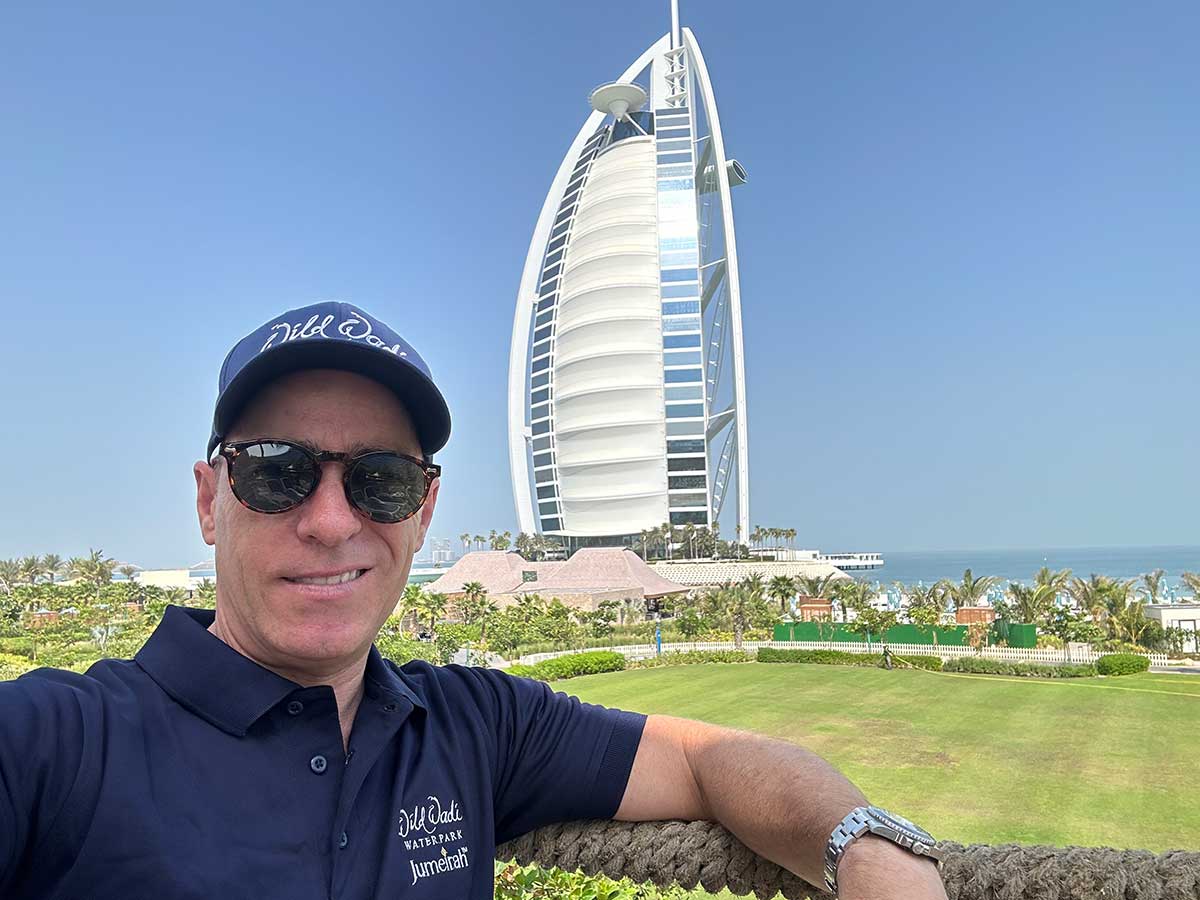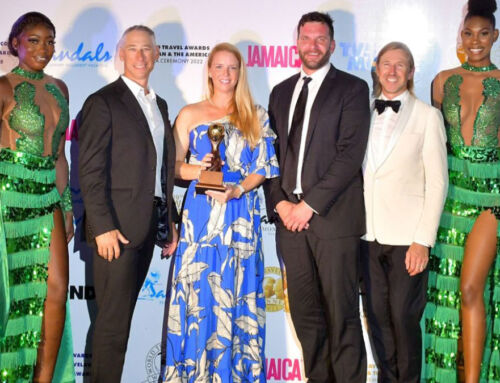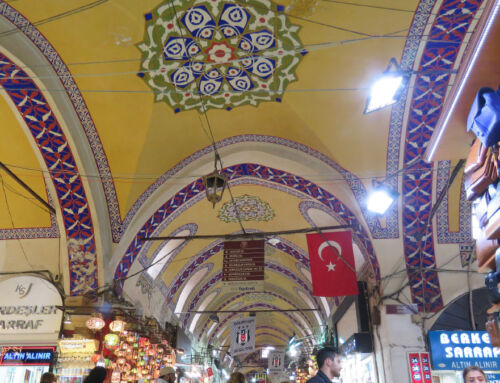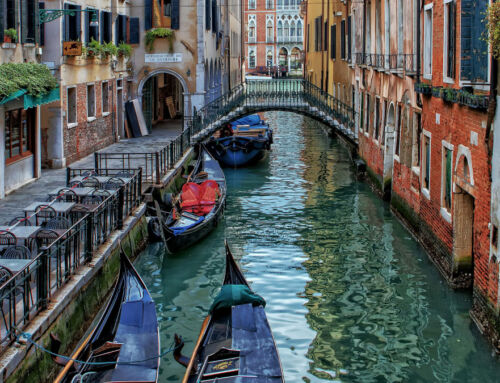Join us on the life journey of this leisure management professional. He started as operations manager at one of the 30 entertainment centres of Neverland, the largest leisure company in Argentina. He expanded that position to regional level, but the vicissitudes of history took him to Spain, then to Finland, then to New York, and then to Dubai… In other words, he worked for Aspro Parks, for Zamperla, for Parques Reunidos… And now he works for Dubai Holdings. Follow his story with all the detail he tells in this interview.
Amusement Logic: Your career in leisure and tourism began at Neverland Argentina, at the same time you were studying Business Management. Had you decided beforehand to dedicate yourself to this sector?
Pablo Moragrega Barron: It was purely by chance. I had to work while I was studying; I was married. I had my first child at 20 and my second at 22. Then I got a job at Neverland, which at that time had 18 entertainment centres, where I worked as the manager of one of them, in Córdoba, for a little over two years. Then I opened another one in Buenos Aires and in the end I ended up being in charge of regional operations, because of my profile as an accountant, which included audits in each of the venues. In that time, in two years I made 350 flights, about four a week. For that age I was fine, I was 25 years old, although now I wouldn’t want to do it again, I don’t want to live in an aeroplane.
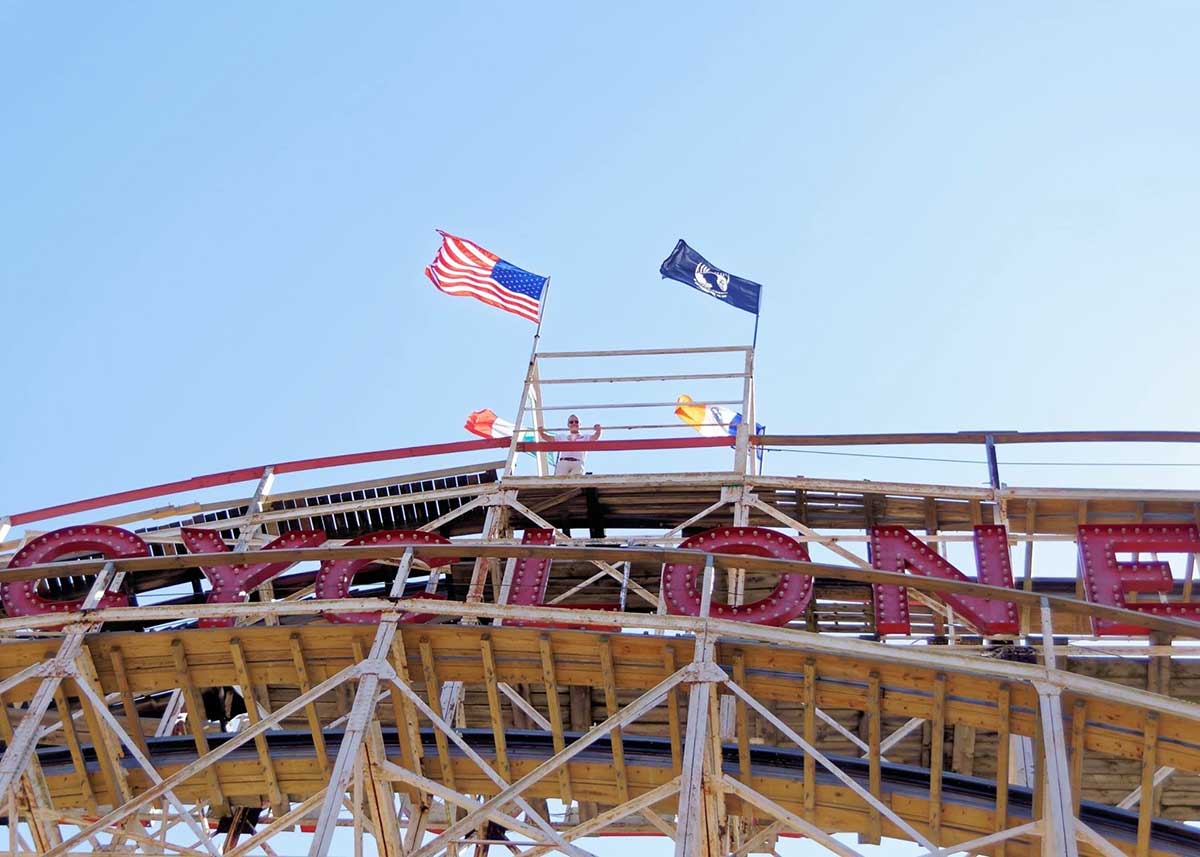
A.L.: From the regional financial and operational control of Neverland Argentina, you moved to the position of general manager of the firm in Spain. How did this change come about?
P.M.B.: When the ‘corralito’ came to Argentina, the company decided to internationalise and offered me to open a subsidiary in Spain. Of course, I accepted, I moved and spent another 5 years in the service of the Neverland subsidiary. I opened three more entertainment centres, always with the idea of taking advantage of the popularity of shopping centres. The first business unit we opened was in Madrid Xanadú, in 2004, at that time the largest shopping centre in Europe, with the first indoor ski slope. The beginnings were not easy, and I had no experience in expansion, so it was a challenge. But coming from Argentina, where reality is fast-paced, let’s say I was already in good health. Here the terrain was much calmer, compared to the hyperinflation, the legal insecurity, etc. I came with my family to Spain and took the opportunity to study. But after 10 years in Neverland, I said to myself, what am I doing here with an MBA and without speaking English? So I left the company and went to Ireland for a year to volunteer to learn English.
A.L.: You subsequently became operations manager at Palmitos Park and Aqualand Maspalomas water parks in Las Palmas de Gran Canaria, within the Aspro Parks group.
P.M.B.: Yes, after 1 year in Ireland I returned to Spain, since Aspro hired me as operations director of the two parks in the Canary Islands. I spent two and a half years managing the operations of the zoo and the water park in Gran Canaria, when Aspro offered me to move to Finland as general director of a resort called Serena. Serena is a ski resort that has an outdoor water park for summer and an indoor water park for winter, open 365 days a year. It also has cottages for accommodation.
A.L.: From the Canary Islands you travelled to Finland, which is a big change. Does the climate affect the way you run a waterpark? What were the biggest challenges you faced at Serena Waterpark and Ski Resort?
P.M.B.: Yes, yes, I went from summer with 45 °C in the Canary Islands to Finland with -40 °C in winter. In other words, I experienced that leap in the same year. And well, Finland is a very calm country, everything is very stable. On the other hand, the people are very different from us.
My experience in Finland was very interesting. It was a park that was about 30 years old, so when Russia was the Soviet Union and there was nothing like it there, the park was a tourist destination for people from St. Petersburg, which is 5 or 6 hours drive from Helsinki. So, we did a lot of our marketing in Russia, in St. Petersburg. Everybody knew about it there. Once, in St. Petersburg, I was recognised as the general manager of Serena Waterpark. I was surprised. On the other hand, it is interesting because a park in such a cold place must be very well prepared, it must keep 20°C inside while it is -30 or -35°C outside. So, imagine the structure to protect a 5,000 m2 park.
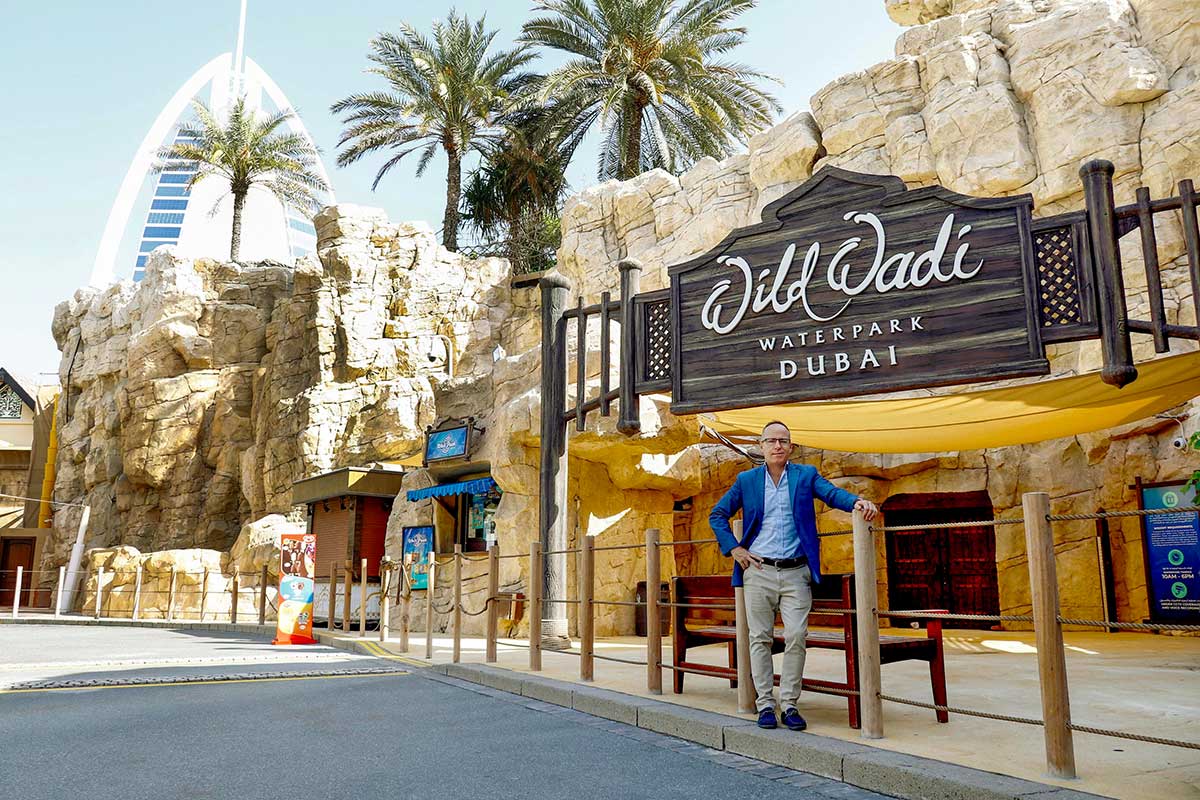
A.L.: Then you were briefly in the operations management of Luna Park in Coney Island, New York. What took you there?
P.M.B.: That was when I was contacted by Zamperla. Zamperla is the world’s largest manufacturer of amusement rides. They hired me to run the operations of Luna Park at Coney Island in the United States. I was with them for almost 4 years. Luna Park is an iconic park, featured in several Hollywood movies, located in an area of New York with a lot of history and has one of the oldest roller coasters in the world, the Cyclone, in operation since 1924.
What was interesting about the management of that park was to witness the efficiency, the efficiency in the management of visitors per hour. That was very well managed. I have never seen a park with such a high visitor capacity. And, of course, with high security standards. It’s unbelievable. Also, the park is a ‘pay as you go’.. It’s not a gated park. And people spend a lot of money inside the park. The American has a very high level of spending compared to the European.
A.L.: You later returned to Spain with Parques Reunidos, specifically to Madrid, to take care of the opening of Atlantis Aquarium and Nickelodeon Adventure in the Madrid Xanadu shopping centre.
P.M.B.: Yes, I lived with my family in New York, but it wasn’t easy for a young child, so we decided to go back to Europe. So, by contacting people in the industry, I managed to sign up with Parques Reunidos to run the indoor division [indoor parks]. In 2018 we moved to the most beautiful city in Spain, Madrid, where I started working for Parques Reunidos on the opening of Nickelodeon in Xanadu, Nickelodeon in Murcia, Atlantis Aquarium and others. Until the management of the company decided to cancel the indoor project.
A.L.: You then continued at Parques Reunidos, this time as general manager of Warner Park and Warner Beach.
P.M.B.: Once indoors was cancelled, I was offered the general management of Warner Park, which is the company’s largest park, a park with 2.3 million visitors a year and top league numbers. I remember we opened a night show, which allowed us to double our turnover during the summer months at night. Then came the coronavirus. Suddenly, the sector took the biggest hit in history and staff reductions came, so I had to sit down and think about what to do and what the next steps would be… Then I spent a year doing projects, working on my own. Among them, a project in Dhaka, Bangladesh, another one in Russia and finally another one in Punta Cana, Dominican Republic.
A.L.: Finally, just two years ago, you joined the Dubai Holding team as general manager of Wild Wadi, The Green Planet, Inside of Burj Al Arab and The Arcade.
P.M.B.: That’s right, when I was in Punta Cana, I got a call from Dubai Holding Entertainment. Dubai Holding is the largest company in Dubai, owning five subsidiaries: Dubai Holding Asset Management, Investment, Real Estate, Hospitality and Dubai Holding Entertainment (DHE). Actually, if I was going 100 per hour in the US, I ended up going 120 per hour in Dubai. DHE is an amazing company where they set goals that are a constant challenge. I currently run the most beautiful water park in the world, Wild Wadi, on the doorstep of the Burj Al Arab. I believe that the location of Wild Wadi is unlike any other water park in the world. I am also taking an indoor zoo, The Green Planet, the only one of its kind in the world. Also the ‘Inside of Burj Al Arab’ tour, a visit to the Burj and the Royal Suite, as well as new projects.
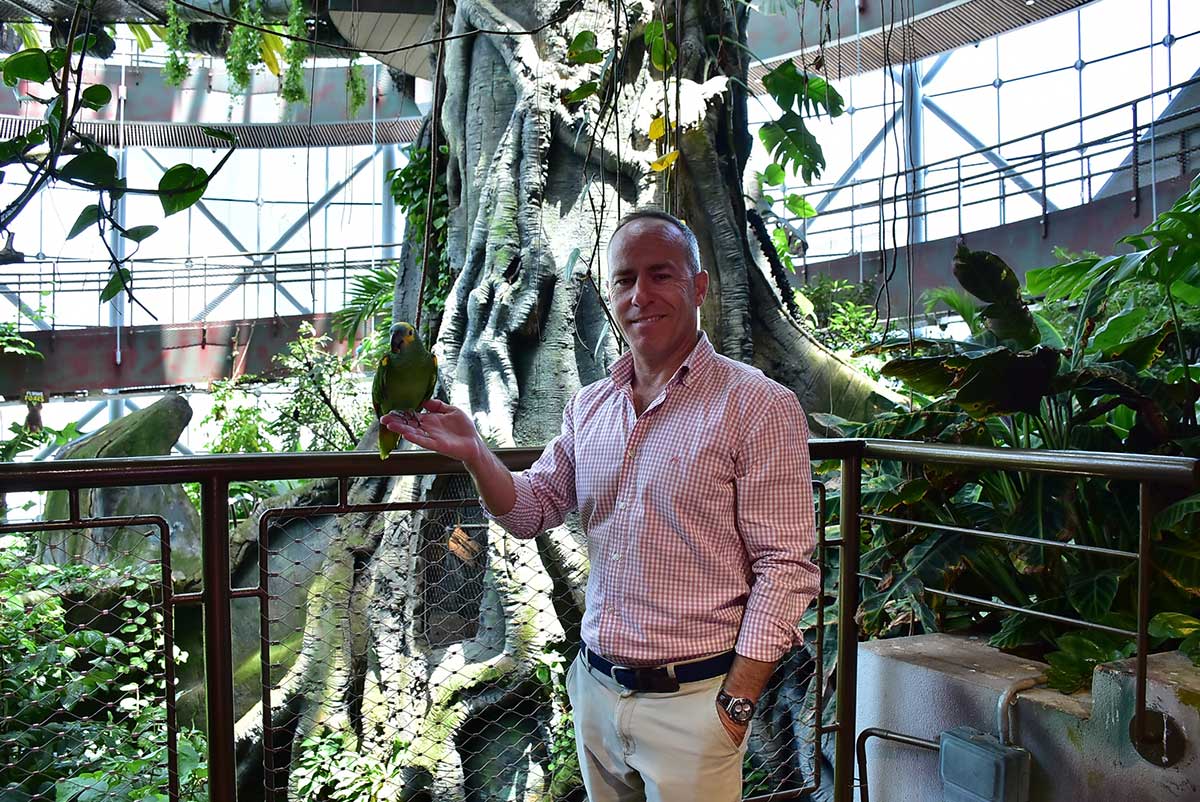
A.L.: What do you find most satisfying about working in Dubai?
P.M.B.: Let’s see, the only challenge of living in Dubai is the heat in summer. Apart from that, Dubai is a place that has everything. It is spectacular. It’s a city that makes an impact. One day you see something you’ve never seen in your whole life and the next week you go somewhere else and say ‘I can’t believe it’, you find something else that impacts you in the same way. And the level of the professionals here is very high; there are the best in the world. No juniors come here, the professionals are all seniors, in other words, whoever comes here has a backing; they come from Disney, Universal… Of course, this is a whirlwind of work that leads you to have a level that you don’t see anywhere else. And on top of that, the projects that are here are very advanced, they are high-level projects. Global Village, for example, is a park that is open 6 months a year and this season it has received 10 million visitors! And the tourism that comes to Dubai demands consumption, it is not low-level tourism, because the tickets and hotels are expensive; in other words, to get here you need a certain purchasing power. The tourist who comes here is a tourist who spends.
A.L.: Finally, how do you see the future of the leisure and tourism sector in Dubai, the Middle East and the world?
P.M.B.: I am 52 years old now and I would love to finish my career here, because it is a challenging place from a professional point of view; the dynamic of this company is to generate ideas all the time; it is focused on improving the customer experience, the service; it seeks to increase profits and grow.
It’s clear that Dubai is one of the world’s hubs of the leisure sector, as it has taken advantage of its geographical location as a nexus between East and West and has made a commitment to leisure as a fundamental part of the tourism offer.


